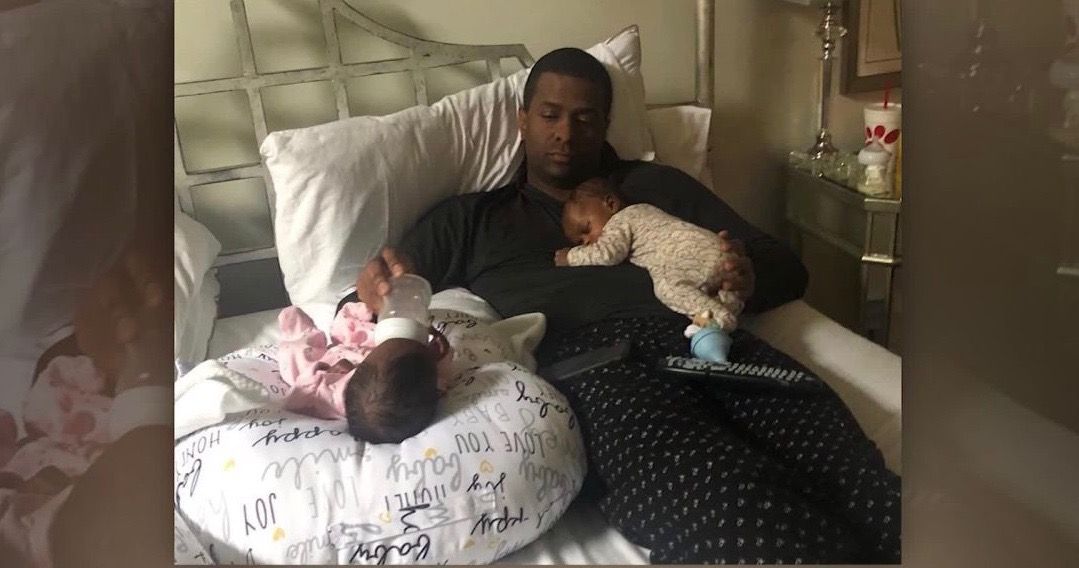After months of waiting, CNN Analyst, Bakari Sellers finally received a liver transplant for his eight-months daughter.
Sellers' daughter, Sadie, was born in January with a rare liver condition that could only be cured with a transplant. She was admitted to Duke University Hospital. “She's doing well. She kept me up last night," Sellers said. "She is coming back to life and showing us those glimmers in her eyes. We are just happy to be at Duke. Happy to have the care that we got. We're just very thankful at this time and very thankful to the donor's family who saved our daughter's life and many lives as well."
She was born with a condition known as biliary atresia, in which the bile ducts present both inside and outside the liver is scarred, according to the National Institute of Diabetes and Digestive and Kidney Diseases (NIDDK). This is a rare disease that affects 1 out of every 12,000 infants in the US. Sadie has a twin brother named Stokely who doesn’t suffer from this condition.
The CNN political analyst got emotional and broke down during a live segment on CNN's New Day on Thursday while describing this life-saving turn of events. He spoke to John Berman about how his strong daughter is slowly recovering from this condition, saying, "Those 90 days were hell, to be honest with you. But my wife is extremely strong. She raised a strong daughter." He smiled, "And so now, we're just paving the way for Sadie to be the next President of the United States. That's all we're trying to do over here."
Sellers expressed immense gratitude to the donor’s family and thanked his colleagues and CNN for supporting him throughout this ordeal. As both of them chatted, Berman noted that New York CNN contributor and Times columnist, Wajahat Ali's daughter is also fighting stage 4 cancer and needs an immediate liver transplant for survival. Sellers encouraged him to stay strong saying, "Just be extremely strong for your family. Be extremely strong for your children." He also urged viewers to expand their knowledge of organ donation and try to help families that are desperately awaiting a transplant.
RELATED: 15 Parents Who Donated Organs To Their Kids
He was joined by Dr. Alisha Mavis, a pediatric liver transplant at Duke Children's Hospital. Mavis encouraged people to come forward for organ donations and revealed that there are about 100,000 people waiting for a transplant. The doctor explained that while most of the organ and tissue donation takes place after the donor had died, some donations can be made when the donor is alive. Family members can also make a liver donation by donating one of its two lobes because each of the lobes is capable of growing or regenerating until it regains its original size.

